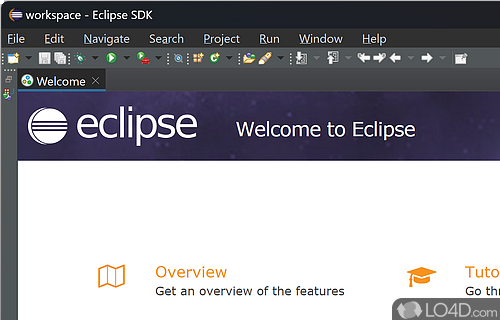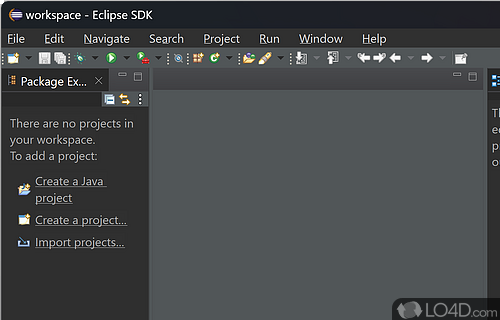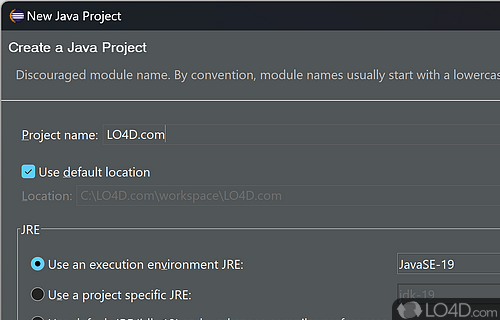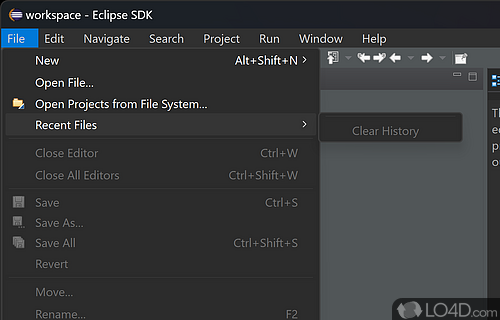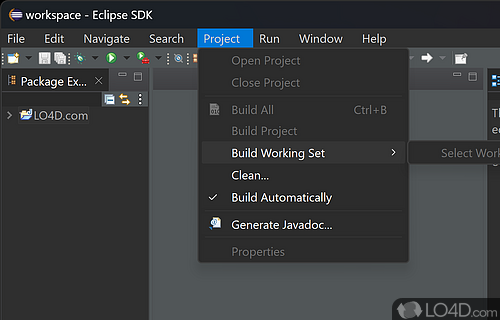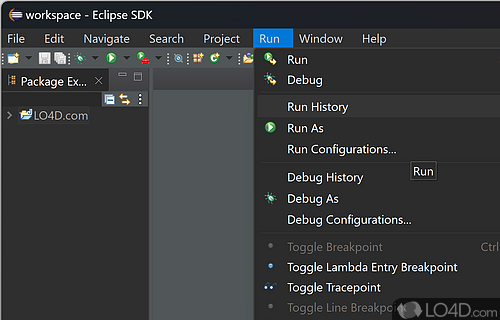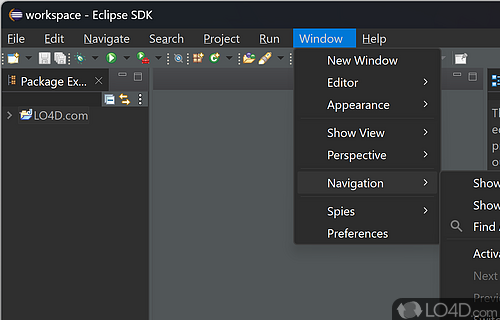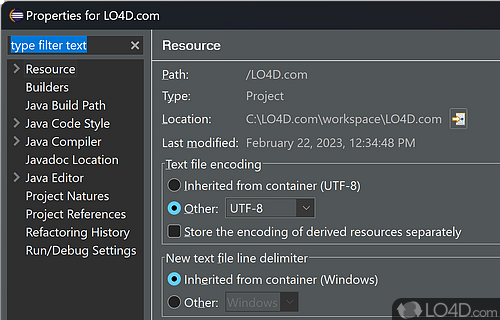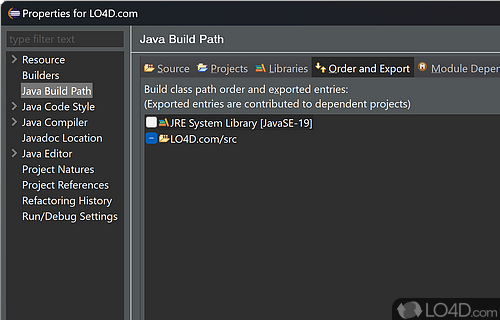IDE for development with Java, PHP, C, LaTeX and others.
When Eclipse first came into the world, it was a product of IBM's creative genius, but soon after that, Eclipse foundation, an independent organization that propagated Open Source community and a gamut of supplementary products, capabilities, and services, took up its development.
The Eclipse SDK is a dynamic programming and component assembly platform that caters to a vast range of applications, from Java-based websites and programs to those relying on C++.
The Eclipse IDE: Functionality through plugins
What sets the Eclipse IDE apart is its capability to extend its functionality through plugins. These modules cater to the developer's requirements and allow the IDE to support other languages besides Java, lending it an excellent deal of flexibility.
Creating client-oriented apps
Developers can leverage the Eclipse environment to create client-oriented applications in a comprehensive plug-in system. While Java is the base programming language, several dedicated plug-ins let the IDE work with other programming and scripting languages, including C, C++, JavaScript, PHP, Perl, Python, Ruby, Ada, and COBOL.
Multi-platform software development
The Eclipse IDE primarily caters to Java developers who want to create multi-platform software applications for Windows, Mac OS X, Linux distributions, and even Solaris. It boasts of a Java development tool, featuring an incremental Java compiler and a full set of Java source files that help you analyze code and perform advanced refactoring techniques.
Support for numerous platforms and servers
The Eclipse environment has support for numerous platforms and servers, such as the Rich Client Platform (RCP) and Server, Web Tools, and Modeling components. The RCP consists of Equinox OSGi, the core platform, Standard Widget Toolkit (SWT), JFace, and the Eclipse Workbench for viewing and editing perspectives.
The Server platform provides development support for a plethora of servers, including Tomcat and GlassFish, while the Web Tools Platform is an extension with the necessary tools to create web and Java EE software products. It comes equipped with a multitude of source and graphic editors for easy development, as well as tools and APIs for everything you need to deploy, run, and test your applications.
Model-based development technologies
The Modeling Platform is a unique proposition in itself, consisting of several official project categories of the Eclipse Foundation that set their sights on model-based development technologies. It includes Model Transformation, Model Development Tools, Concrete Syntax Development, Abstract Syntax Development, Technology and Research, and Amalgam.
Rich and user-friendly client-oriented tools
When it comes to creating user interfaces, RCP developers have the upper hand, thanks to the model-based interface and the CSS-based declarative mechanism that help put together a stylish UI. Customizing app interfaces is a breeze, and the services-oriented programming model helps you run Eclipse platform services discreetly.
Eclipse-based software tools
In a nutshell, Eclipse SDK is a necessary package for Java development that offers a wide range of Eclipse-based software tools, including 2-plan Desktop, Acceleo, Adobe Flash Builder, Aptana, Bioclipse, CityEngine, IBM Lotus Notes, RSSOwl, Talend Open Studio, Xmind, Zen Coding, and Zend Studio.
To sum it up
So, if you're a Java developer looking for an all-in-one IDE with all the right ingredients for developing truly great programs, the Eclipse SDK is your go-to tool.
Features of Eclipse SDK
- Automation: Buildship, Xtext, Xpand, Xtend.
- Builds: Generate Ant builds, Maven integration.
- Debugging: Hot code replace, breakpoints, step filters.
- Documentation: Javadoc hover, XML/HTML/CSS/XSL support.
- Flexibility: Customizable perspectives, themes, editor.
- Markers: Syntax, task, bookmark, text search.
- Modeling: UML2, BPMN2, SysML.
- Platforms: Java, C/C++, PHP, JavaScript, Groovy.
- Plugins: Marketplace, Oomph, P2-Repository.
- Refactoring: Rename, move, delete, global replace.
- Source Analysis: Static analysis, Findbugs integration.
- Source Control: Git, SVN, CVS, Mercurial.
- Testing: JUnit integration, code coverage.
- Tools: PyDev, Mylyn, WindowBuilder, Web Development.
Compatibility and License
Eclipse SDK has been released under a General Open Source license which means the software can be downloaded and distributed for free. There are other programs from programming software available with different licenses like GPL or just plain closed-source freeware.
Eclipse Foundation accepts donations for the continued development of this free software.
What version of Windows can Eclipse SDK run on?
Eclipse SDK can be used on a computer running Windows 11 or Windows 10. Previous versions of the OS shouldn't be a problem with Windows 8 and Windows 7 having been tested. It comes in both 32-bit and 64-bit downloads.
Filed under:
- Eclipse SDK Download
- Free Programming Software
- Open source and GPL software
- Integrated Development Environment Software

